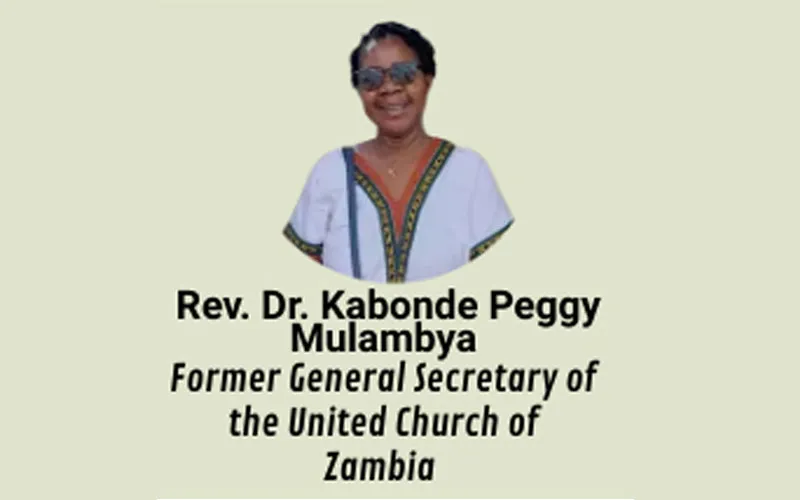“Even with the strides made, the church could not reconsider replacing me with a woman but reverted back to men,” she recalled.
The United Church of Zambia is part of AACC and was formed in 1965 as a result of the union of Church of Central Africa, Rhodesia (a mission work of the Church of Scotland), the Union Church of Copperbelt, the Copper belt, the Church of Barotseland and the Methodist church.
Rev. Mulambya also noted that the language used when there is a female leader is “unacceptable.”
“When something wrong happens, people will start affirming what tradition says about women,” she said, and added, “The statement that ‘we told you that women are like this’ always comes out. During my tenure of office, I experienced such kinds of statements, but I just strengthened myself.”
She also observed with regret that some women tend to abuse each other without realizing that socialization as a result of patriarchy is at play.
(Story continues below)
When it comes to elections, she said, many women will not support or vote for their fellow women, but instead, would join other people to talk ill about their fellow women.
To protect women and girls in many parts of the world, she said, systems have to be critically examined and strengthened by using gender lenses.
“Women and girls should be conscientized on the importance of human dignity, womanhood, culture and religion and an absence of heterosexual male dominance so as to motivate increasing numbers of women in higher positions to accommodate other women,” Rev. Mulambya said.
She underscored the need to establish systems that will ensure that church politics, programs and legislation are equitable for both women and men.
“To fully discharge these responsibilities, those involved in policy development and analysis should have an understanding of gender issues,” she went on to say referencing suggestions to improve participation of women in church leadership and to eliminate gender-based violence against women.
The former United Church of Zambia official also urged those in church authorities to examine the structures that oppress women and girls and replace them with those that are calling for equity and equality.
Women, if accorded the chance in leadership, she said, can turn the world into a better place to live in because of their God-given qualities.
“Women are visionary because they do not just think about themselves but more about other people. They are honest and sincere in most of the things they do and want to advance anything that they do. They are goal setters,” Rev. Mulambya said March 8.
She explained, “Given opportunities to lead in both church and secular, the world can be a better place to live in. Many female leaders are thoughtful of individual lives and also at a larger scale.”
Agnes Aineah is a Kenyan journalist with a background in digital and newspaper reporting. She holds a Master of Arts in Digital Journalism from the Aga Khan University, Graduate School of Media and Communications and a Bachelor's Degree in Linguistics, Media and Communications from Kenya's Moi University. Agnes currently serves as a journalist for ACI Africa.








